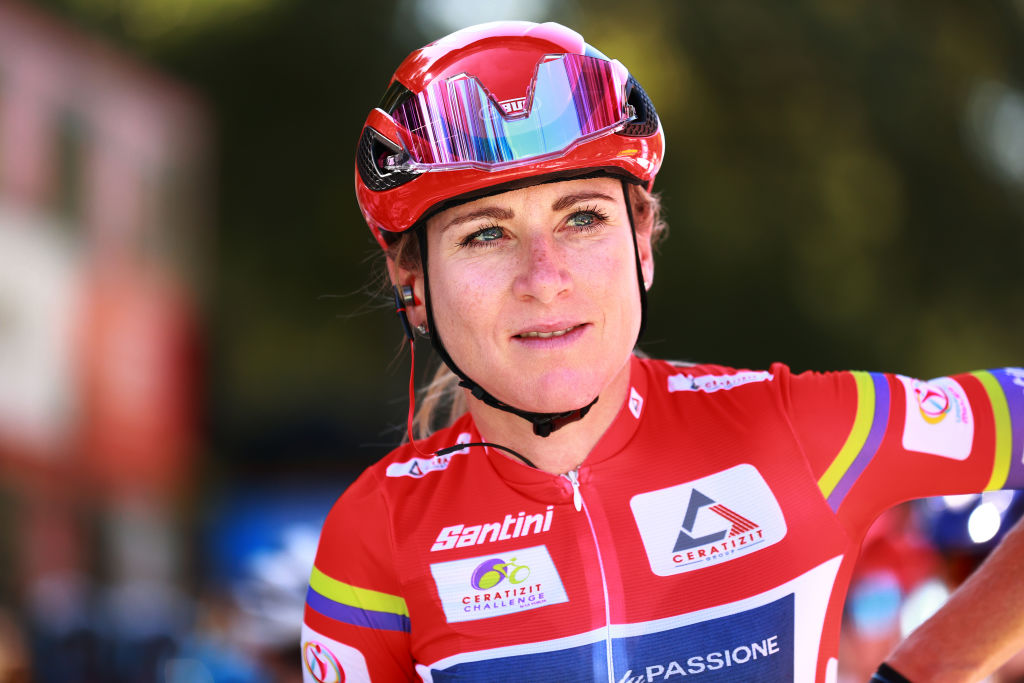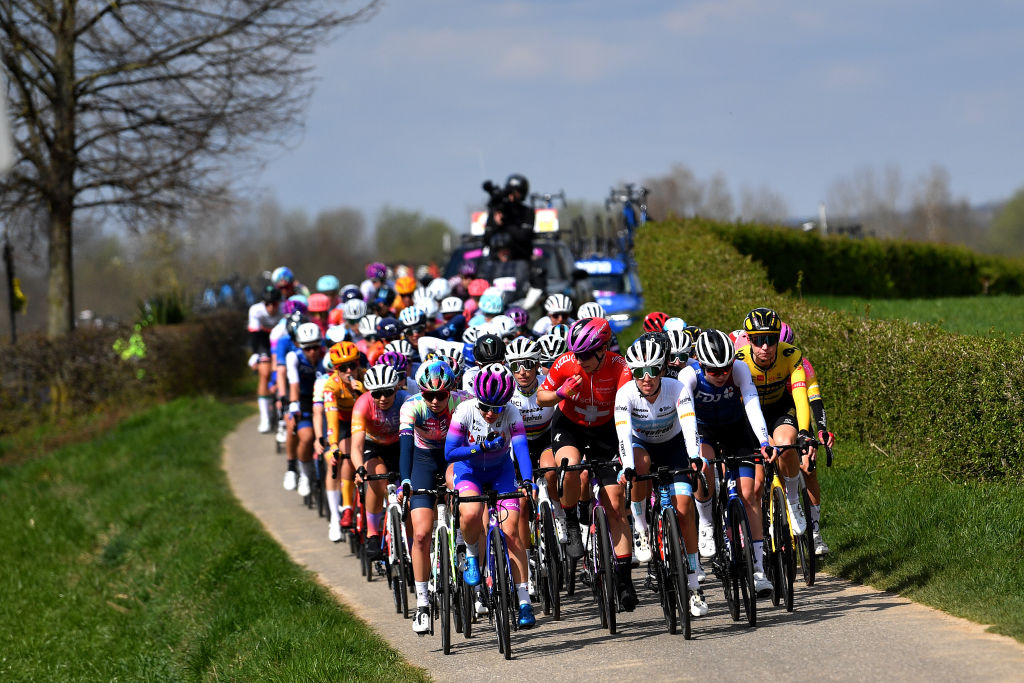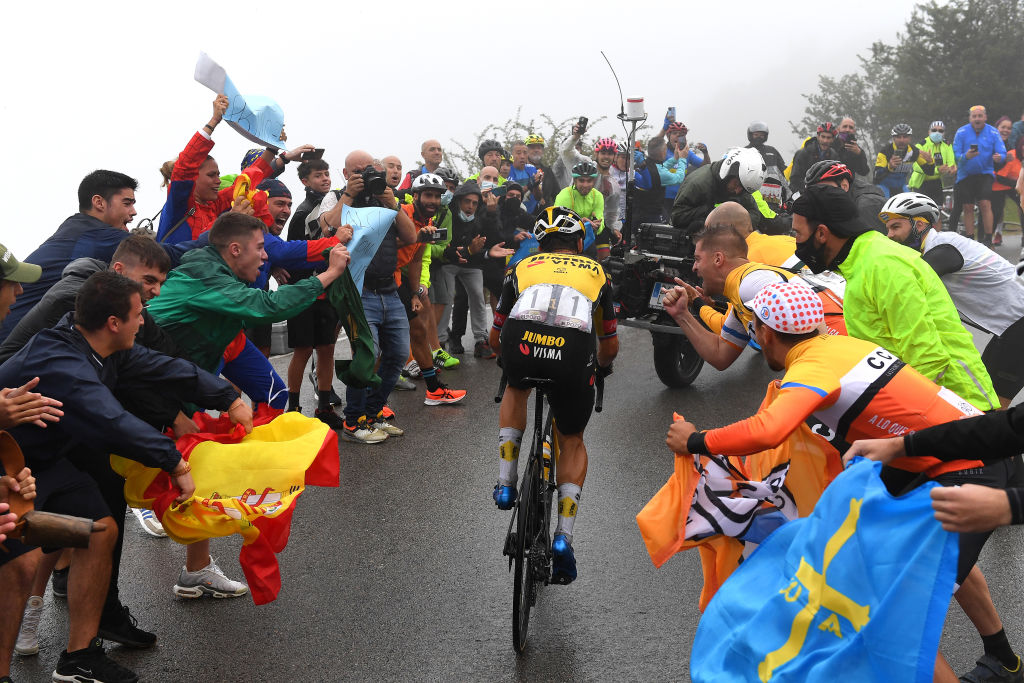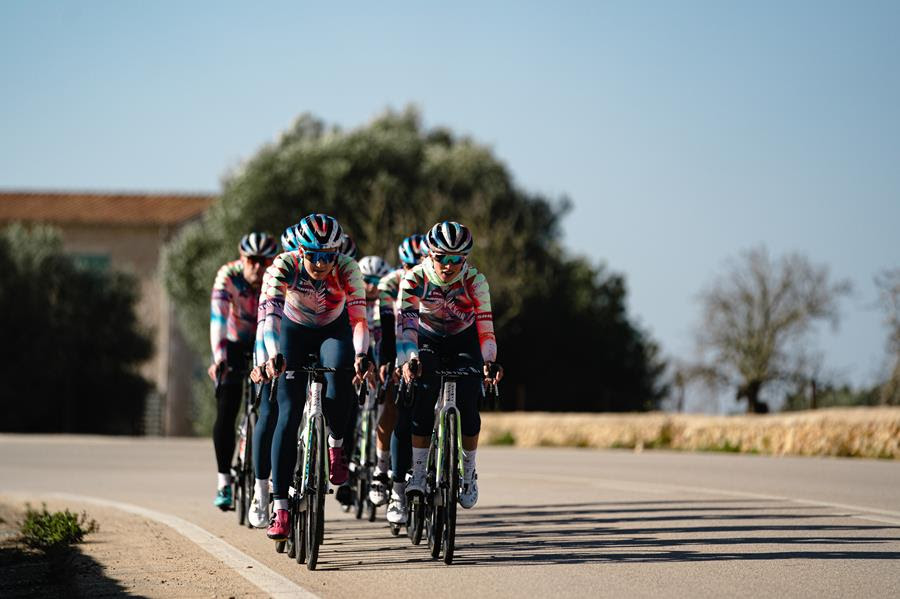
As the Spring Classics have wrapped up and the three Ardennes Classics are now complete, the peloton heads into the late-spring and summer stage racing season that will begin at La Vuelta Femenina by Carrefour held from May 1-7 in Spain.
For the first time since the inaugural event, formerly known as Challenge by La Vuelta, the peloton will compete over 700 kilometres with more than 8,500 metres of elevation across seven stages at the revamped event.
There will be a mix of sprint and undulating early stages followed by three challenging final stages, which includes the stage 7 grand finale that finishes atop Lagos de Covadonga, a 16km ascent with an average of 7.4%, and where the overall champion will be crowned.
Cyclingnews breaks down the top contenders and the route details and highlights the biggest talking points ahead of La Vuelta Femenina.
Join Cyclingnews' coverage of 2023 La Vuelta Femenina and check back after the event for the full race reports, results, photo galleries, storylines and race analysis. The event will also be broadcast around Europe and the rest of the world, with live coverage of all seven stages, and you can find out more details in the How to watch La Vuelta Femenina – live TV and streaming.
Seven-rider teams

Key changes were set into motion in the Women's WorldTour this year, and one of those is the increase in team roster sizes, which is set at seven riders for the start of stage races that are six days or longer, according to Article 2.2.003 of the UCI regulations.
The UCI published the changes as part of a series of new regulation updateson its website following the Management Committee meeting in September, and they came into effect on November 1.
La Vuelta Femenina is the first race on the Women's WorldTour calendar this year that is seven stages, and so the first time that teams will start with seven riders. Other events where teams will start with seven riders include the Giro d'Italia Donne, Tour de France Femmes, Tour of Scandinavia, and Simac Ladies Tour.
Adding a seventh rider to each roster for the longer stage races on the Women’s WorldTour could increase a team’s competitiveness within a race by heightening the degree to which a team can support the pursuit of both stages and special classifications. It could also allow a team to continue with tactical numbers even in the unfortunate case of early abandons due to crashes and illness.
However, there are some WorldTeams and Continental teams that might struggle to meet the new requirement. There are more race days on the calendar, and although top-tier teams are now permitted to hire 20 riders, the rosters remain at just 13-16, meaning that they may not have enough riders to field seven at multiple races. Also, teams that have a shortage of rider availability due to injury or illness could struggle to meet this requirement.
Can SD Worx transfer spring Classics success to the stage racing season?

SD Worx enjoyed a remarkable Spring Classics campaign, winning 12 races including Omloop Het Nieuwsblad, Omloop van het Hageland, Strade Bianche, Ronde van Drenthe, Nokere Koerse, Gent-Wevelgem, Dwars door Vlaanderen, the Tour of Flanders, Scheldeprijs, Amstel Gold Race, Flèche Wallonne and Liège-Bastogne-Liège.
The question is can they continue this winning streak into the stage racing season?
Demi Vollering will be a favourite for La Vuelta Femenina and certainly carries top form into the race after winning the Ardennes Classics triple crown last week.
However, the team is likely to swap out some of its prominent one-day racers with climbers. Lotte Kopecky, for example, ended her spring campaign at Amstel Gold Race and was back on the track at the UCI Nations Cup in Canada last weekend.
The team has not yet confirmed its full roster for the race, but Blanka Vas and Femke Markus will join Vollering as she hunts the overall title across the seven days of racing. The team also could see riders like Anna Shackley and Naimh Fisher-Black competing at the mountains stage races to support the team's overall ambitions.
Vollering has stated her intention to compete for the overall title at the Spanish stage race while also noting her focus in July at the Tour de France Femmes.
SD Worx director Anna van der Breggen also said the team has high ambitions for the Vuelta. "We want to continue on the same note that what we had in spring. We have assembled a very good line up, with some young riders and two GC leaders in Niamh Fisher-Black and Demi Vollering, who are both in good shape."
Lagos de Covadonga showstopper

Among the major changes to the entire race this year, Unipublic also announced that the race would finish atop the Lagos de Covadonga, which is the most featured mountaintop finish in La Vuelta’s history.
The ascent has been used 22 times in the men's Vuelta a España, with climbers Primož Roglič, Thibaut Pinot, and Nairo Quintana the most recent stage winners at its summit.
Lagos de Covadonga is a 16-kilometre gruelling climb that averages 7.4% and is similar to Alpe d'Huez in length and difficulty. It comes at the conclusion of stage 7, which starts in Pola de Siero, and the riders cover 93.7km and finish at the summit of Lagos de Covadonga.
Although there is also an opening team time trial and two challenging mountain stages before the finale, Lagos de Covadonga is certainly the showstopper of the seven-day race and where the overall champion will be crowned.
Van Vleuten aims to turn season around
The event, formerly known as Challenge by La Vuelta, started as a one-day race in Madrid in 2015 and expanded to two stages in 2018, and a third stage was added in 2020. The race was further expanded in 2021 to four stages and then, last year, to five stages, where Annemiek van Vleuten won the overall titles in both editions.
World champion Annemiek van Vleuten is undoubtedly a favourite to win a third title in a row for the mountainous stage races, but she comes into the race without a win yet this spring and is hoping to turn that around in Spain.
“My year has so far been a bit disappointing. It has not been my best season as I have had some bad luck with flat tires, crashes… But I enjoy racing with my heart even if I cannot race how I wanted," Van Vleuten said.
"I could feel in La Flèche Wallonne that my body is growing into shape. I had a good race and was able to put a good attack. I take confidence from that, and I won’t look back to what happened before.”
Van Vleuten is one of the strongest climbers in the world on the longer mountain passes, showing her strengths to win three Giro d'Italia titles and the Tour de France Femmes, where she won in Le Markstein and atop La Planche des Belles Filles, to close out the race last July.
“It's really good that they added Lagos de Covadonga to the course. It is important to have climbs with a name in order to give more impact to the races. People in the Netherlands got excited when they learnt that we were riding to Lagos de Covadonga. I really think these marquee names add something to the event. That’s a really good step!”
New faces emerge for the stage races

As the stage racing season kicks off, new faces are about to emerge among the peloton. One rider confirmed to return to road racing at La Vuelta Femenina is Chloé Dygert.
The former time trial World Champion and seven-time track World Champion is back after a 14-month break from road racing due to a variety of health issues, including a lengthy recovery from a leg injury, Epstein Barr, and heart problems.
Although she began racing last weekend at the UCI Nations Cup on the track in Milton, Canada, La Vuelta Femenina will mark her first stage race in Europe with Canyon-SRAM. She is expected to play a key role in the opening 14.5-kilometre team time trial in Torrevieja.
Van Vleuten's teammate Emma Norsgaard, at Movistar, also returns to racing at the seven-day race. Norsgaard has not raced since Strade Bianche, where she was forced to abandon after sustaining a broken collarbone in a crash. Now fully recovered, she will likely be on the hunt for stage wins and to support Van Vleuten in her bid for a third title.
Blanka Vas is scheduled to return to road racing at the Vuelta Femenina in support of Demi Vollering, she has only competed in one event this spring at Brabantse Pijl.
While Lizzie Deignan was initially scheduled to return to the peloton at the Vuelta Femenina, she made an early comeback at Flèche Wallonne and Amstel Gold Race. She will also line up at the Vuelta, aiming to ease her way back into racing eight months following the birth of her second child.
There are also eleven Continental teams, including nine Spanish teams Bizkaia-Durango, Cantabria Deporte, Rio Miera Women`s Cycling Team, Eneicat-CMteam-Seguros Deportivos, Farto-BTC Women's Cycling Team, Laboral Kutxa-Fundacion Euskadi, Massi Tactic Women's Team, Soltec Team and Sopela Women's Team, along with French team St Michel-Mavic-Auber93 and Norwegian Team Coop-Hitec Products. Zaaf Cycling Team was initially scheduled to race but has since pulled out of the event and has had its licence revoked after eight riders have left the team.







